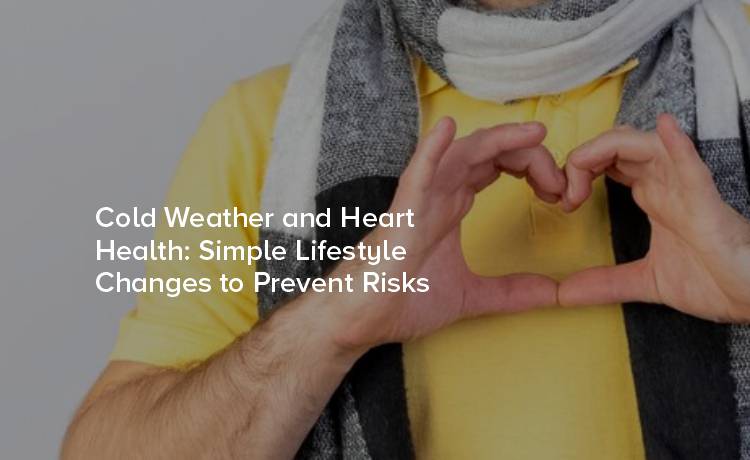
When temperatures drop, our bodies work extra hard to stay warm. But did you know that cold weather can also put added stress on your heart? Studies show that winter brings an increased risk of heart attacks and other cardiovascular issues. The good news is that with a few simple lifestyle changes, you can protect your heart health and stay safe throughout the colder months.
Winter's chill doesn't just make us reach for the thermostat—it also triggers several physiological changes in the body that can strain the heart. Here's a closer look at how cold weather impacts your cardiovascular system:
When it's cold, your blood vessels constrict (tighten) in an effort to preserve body heat. While this helps protect vital organs, it also increases blood pressure, forcing the heart to work harder to pump blood throughout the body. For individuals with pre-existing heart conditions, this added strain can be dangerous.
Cold exposure can make blood thicker, which raises the risk of clots forming. Blood clots can block arteries, leading to heart attacks or strokes. This is particularly concerning for people with underlying cardiovascular issues.
Research consistently shows that heart attack rates spike during winter months. A study published in Circulation found that the incidence of heart attacks peaks in January, when temperatures are at their lowest. Activities like snow shoveling compound the risks by combining strenuous exertion with cold exposure. For those already at risk, this can be a recipe for disaster.
It's crucial to recognize the warning signs of cardiovascular trouble during winter. Seek medical attention immediately if you experience any of the following symptoms:
Even mild symptoms shouldn't be dismissed, especially if you have a family history of heart disease. Early intervention can save lives.
A proactive approach to winter wellness is your best defense against cold-weather heart risks. These simple yet effective lifestyle changes can make a big difference:
Layering up isn't just about comfort—it's about protecting your cardiovascular health. Wear warm clothing, especially if you're spending time outdoors. A hat, gloves, scarf, and insulated jacket can help minimize heat loss and prevent your body from overworking to stay warm.
Regular exercise is crucial for heart health, but winter activities like shoveling snow or running in freezing temperatures can be risky. Here’s how to stay active safely:
Begin with light stretching or brisk walking indoors before heading outside.
If you're shoveling snow, take frequent breaks and avoid lifting heavy loads.
Consider alternatives like yoga, pilates, or treadmill walks when it's too cold outside.
Cold weather causes blood pressure to rise, so it's vital to keep track of your levels during winter. If you have hypertension, discuss with your doctor whether adjustments to your medications are necessary during the colder months.
Winter often tempts us with heavy comfort foods, but it’s important to prioritize a heart-healthy diet. Focus on:
Vegetables like kale and spinach are rich in magnesium and potassium, which help regulate blood pressure.
Found in salmon, walnuts, and flaxseeds, omega-3s reduce inflammation and support heart health.
Soups made with lentils, beans, and oats provide warmth and essential nutrients.
Whenever possible, reduce time spent outdoors in extreme cold. If you must be outside, pace yourself with frequent breaks in heated spaces.
Colder temperatures can trick you into thinking you’re not thirsty, but dehydration thickens your blood and increases cardiovascular strain. Drink plenty of water or herbal teas throughout the day to keep your heart happy.
Winter illnesses like colds and the flu can put extra strain on your heart, especially for individuals with pre-existing conditions. Get your flu shot, maintain good hygiene, and wash your hands frequently to reduce the risk of infection.
The holiday season and winter isolation can both contribute to elevated stress levels, which are hard on your heart. Incorporate mindfulness practices like meditation, deep breathing, or journaling into your daily routine to manage stress effectively.
If you’re at high risk for heart disease—or have experienced related symptoms in the past—it’s wise to touch base with your healthcare provider before winter gets into full swing. A simple check-up could help identify risk factors you might not even be aware of, empowering you to take preventive action.
Cold weather brings unique challenges for heart health, but with awareness and some thoughtful lifestyle changes, you can keep major risks at bay. Dressing warmly, staying active (safely!), eating heart-smart foods, and monitoring your health are excellent starting points.